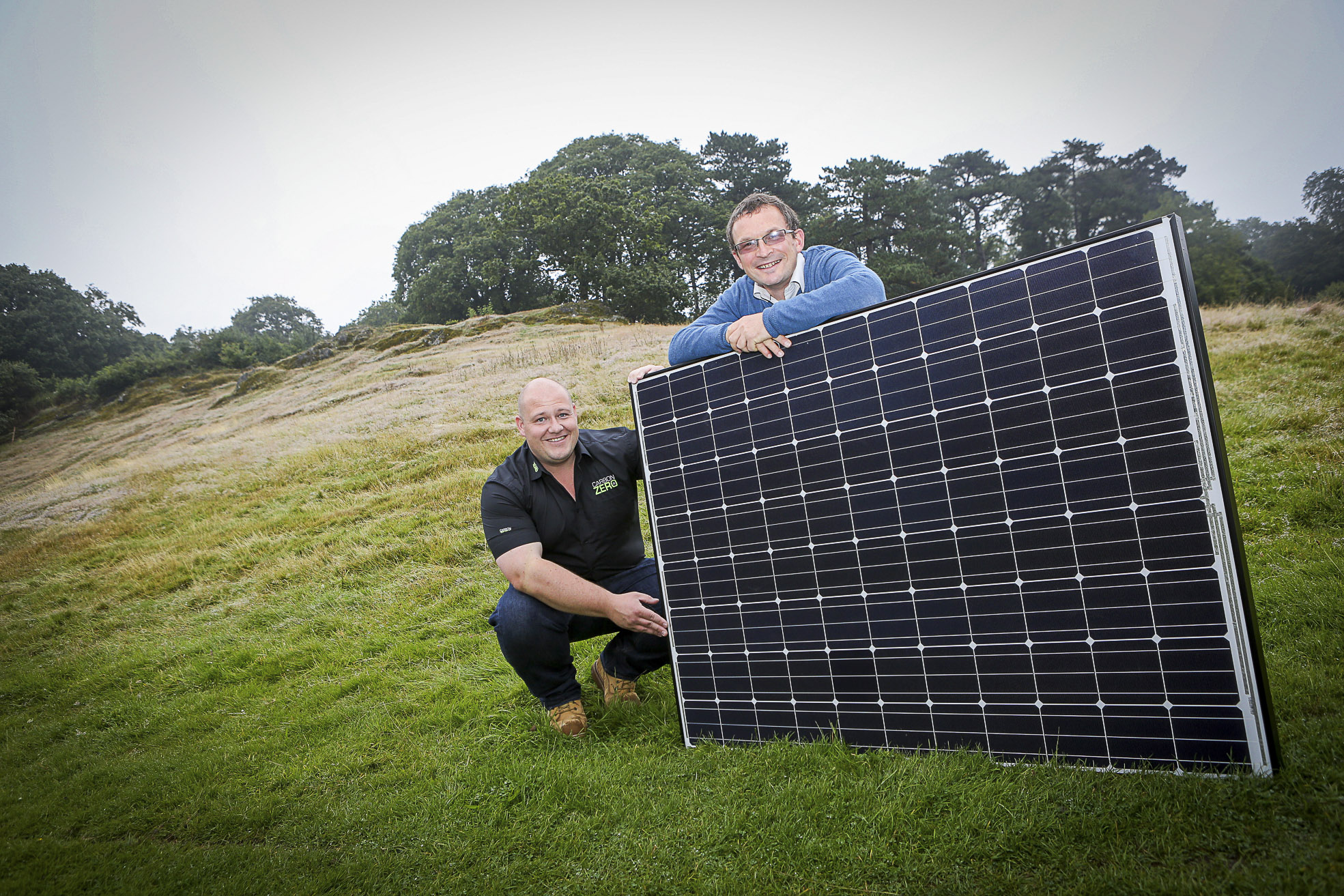One of the UK’s best loved gardens is going greener – thanks to solar power.
Solar panels are being installed on a largely concealed hillside in the overflow car park at the stunning Bodnant Garden in the Conwy Valley.
The work is being done by two St Asaph based companies, Carbon Zero Renewables and Mini Muckshift, on behalf of the National Trust who manage the world-famous attraction.
The array of 175 state-of-the art Panasonic panels has been supplied as part of a new corporate partnership agreement with the technology company.
It will generate 50 kilowatts which will be used to provide energy for the Tea Pavilion cafe at the bottom of the main car park and two electric car charging points.
The initiative is part of the National Trust’s drive to reduce their overall energy use by 20 per cent by 2020 and to use renewable technologies to reduce the Trust’s use of carbon based fuels by at least 50 per cent.
The news about the solar array has come as another boost to Bodnant Garden which has enjoyed an increase in visitor numbers over the summer.
Part of the 80-acres of beautiful gardens had remained closed off for more than 130 years.
Now, the 10 acres of tranquil riverside known as the Far End have been opened up and it’s proved a big hit with visitors.
Alexander Turrell, the National Trust’s Environmental Adviser in Wales, was proud Bodnant Garden was leading the way in the green revolution.
He said: “As part of that, we are trying to integrate appropriate technology into suitable locations and here we are putting the solar panel array in the overflow car park where it’s out largely of sight, and where it does not detract from the spirit of this special place.
“The Panasonic N285 panels used are quite new on the market and they are ultra-efficient, very hard wearing and are designed to maximise the energy generated from any given space.
“It’ll supply power to the Tea Pavilion, and as all the electricity generated will be used on site it will significantly reduce the carbon footprint of Bodnant Garden.”
This project follows on from a number of other initiatives at Bodnant Garden to reduce energy and water use, ranging from the installation of smart meters to water management.
According to John Hardy, Business Director Panasonic Europe, they are proud to be associated with the project.
He said: “It’s a privilege for us to be working with the National Trust and Carbon Zero at the Bodnant site.
“Our business founder was a strong believer that everything we do as a business should make a contribution to society and I can’t think of a better way to do this than to support this stunning location in its quest to become greener. “
Carbon Zero boss Gareth Jones was thrilled to have been awarded the contract, particularly as the civil engineering side of the work was being done by the family business Mini Muckshift, which is run by his father Tom.
Gareth said: “It’s a flagship project for us. We’re delighted to be involved and delighted to show the Trust what we can do.
“It’s a challenging project because it draws on the skills of myself and family business’s background because of the nature of the hillside terrain.
“This will be an interesting challenge for us to mount and landscape the array in such a way as to minimise disturbance to the beauty and uniqueness of Bodnant Garden.”
According to Bodnant Garden Property Manager William Greenwood, the project underlined their green credentials.
He said: “The National Trust as a whole is an environmental charity as well as a conservation charity
“We feel it is right that we lead the way in making sure that we are as environmentally-friendly as possible in terms of reducing fossil fuel use.
“We’re pleased to be working with a local company, Carbon Zero, in conjunction with Mini Muckshift and it is part of a larger corporate partnership we have with Panasonic.
“This is cutting edge stuff here and we’re very lucky that Gareth is a local contractor who is registered to work with these state of the art panels.
“We want to use local contractors wherever possible and there is a lot of expertise in Wales in renewable technology so it’s all meshing together quite nicely.”










